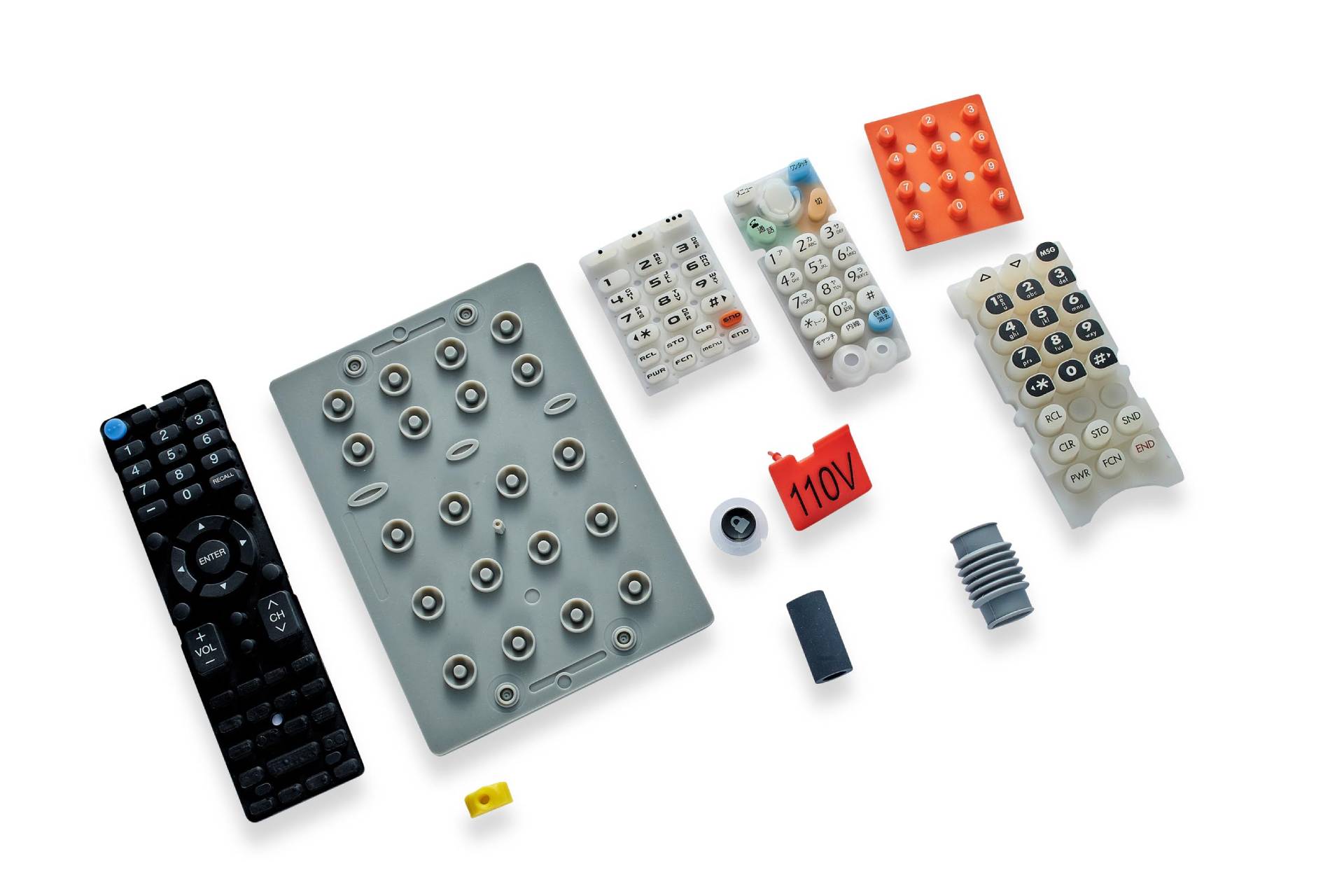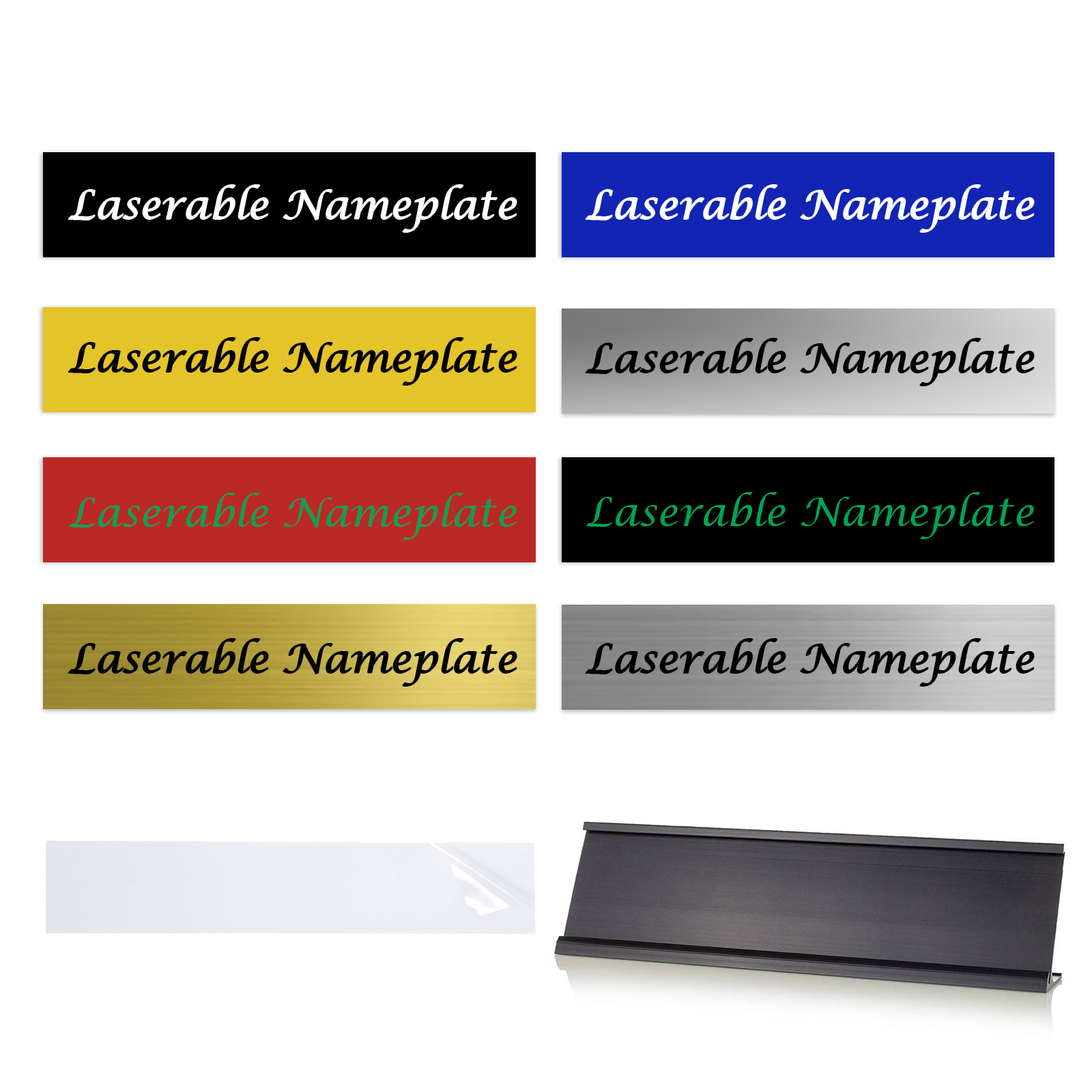Why Every Office Should Use Plastic Nameplates for Staff Identification
Just How Plastic Nameplates Are Produced: A Comprehensive Guide to Their Manufacturing Process
The production of plastic nameplates involves numerous exact actions, beginning with the selection of appropriate products to the last complements. Each stage is vital, making sure the product satisfies specific needs for durability and aesthetic appeals. Different manufacturing strategies play a significant function in crafting these nameplates. Understanding these procedures can lose light on the complexities behind what could feel like a simple product. What elements add to the top quality and personalization of these nameplates?
Comprehending Plastic Materials Used for Nameplates

The Layout Process: From Idea to Prototype
The style process for plastic nameplates begins with a clear idea that guides the general production. Developers work together with clients to define the function, design, and specific needs of the nameplate. This preliminary phase consists of brainstorming sessions, mapping out ideas, and choosing shades and typefaces that straighten with branding goals.Once the principle is developed, developers utilize computer-aided design (CAD) software application to produce thorough electronic depictions. These prototypes enable visualization and changes prior to progressing. Feedback from stakeholders is important during this stage, as it helps fine-tune the style to meet expectations.After wrapping up the electronic model, a physical model may be produced, often with methods like 3D printing. This substantial depiction allows additional analysis of appearances and performance. On the whole, the design procedure is an important step that lays the foundation for the effective manufacturing of top notch plastic nameplates.
Cutting and Forming the Plastic
In the cutting and shaping stage of plastic nameplate manufacturing, the selection of products plays a vital function in determining the end product's top quality and longevity (Plastic Nameplates). Different precision reducing methods, such as laser cutting and CNC machining, guarantee that the plastic is shaped with accuracy and uniformity. This combination of careful product choice and progressed reducing approaches is essential for creating top notch nameplates

Material Option Refine
Choosing the best product is important for generating high-quality plastic nameplates. Different kinds of plastics are readily available, each offering distinct benefits and attributes. Usual selections consist of acrylic, polycarbonate, and PVC. Acrylic is preferred for its quality and UV resistance, making it suitable for outdoor applications. Polycarbonate, recognized for its sturdiness and impact resistance, is ideal for environments that call for enhanced defense. PVC is typically selected for its cost-effectiveness and convenience in style. The option process also considers variables such as surface, color, and density surface, which can greatly influence the final look and functionality of the nameplate. Inevitably, the picked product needs to straighten with the planned usage and aesthetic goals of the plastic nameplate.
Accuracy Trimming Strategies
While choosing the ideal material lays the foundation, precision cutting methods play a vital function fit the plastic nameplates right into their final types. Different methods, including laser cutting, CNC milling, and die reducing, are utilized to achieve precision and uniformity. Laser cutting uses focused light to generate tidy sides and intricate styles, ideal for complicated patterns. CNC milling offers versatility by removing excess material with precision, accommodating different densities and shapes. Die reducing, on the various other hand, enables automation of consistent items, improving performance. Each method is chosen based upon the design specs and the desired coating, making sure that the end product fulfills top quality standards and customer expectations while keeping sturdiness and visual appeal.
Printing Strategies for Personalization
Exactly how can producers achieve accurate and vibrant designs on plastic nameplates? The solution hinges on numerous printing strategies customized for modification. Digital printing has obtained popularity due to its capacity to create complex layouts and high-resolution pictures directly onto plastic surface areas. This approach permits for fast turn-around times and minimal setup prices, making it ideal for short runs and customized orders.Screen printing stays another widely used technique, especially for larger quantities. It involves creating a pattern and applying layers of ink, resulting in abundant look at here colors and resilience. UV printing, which uses ultraviolet light to heal the ink, is additionally reliable, providing exceptional bond and resistance to fading.Additionally, pad printing offers flexibility for irregularly designed nameplates, permitting for comprehensive styles on difficult surfaces. These printing methods enable producers to fulfill diverse customer needs while ensuring quality and long life in their plastic nameplate items.
Surface Treatments and Finishing Options

Quality Assurance Measures in Manufacturing
Guaranteeing the highest possible requirements of quality assurance throughout the manufacturing of plastic nameplates is necessary for maintaining product integrity and customer satisfaction. Manufacturers apply rigorous evaluation protocols at various phases of the manufacturing process. Raw products undertake thorough screening to confirm they fulfill requirements for longevity and color consistency. Throughout the molding stage, automated systems keep track of criteria such as temperature and stress to avoid defects.In addition, aesthetic inspections are conducted to recognize any kind of surface flaws or imbalances. When the nameplates are created, they go through functional examinations, consisting of bond examinations for printed aspects and stress and anxiety examinations for longevity. Quality assurance teams often use analytical sampling methods to analyze sets, ensuring that any variances from requirements are quickly resolved. This in-depth technique not only boosts product quality however also fosters count on with clients, attesting the supplier's dedication to excellence in every nameplate created.
Product packaging and Distribution of Finished Nameplates
The product packaging and circulation of ended up plastic nameplates are vital actions in guaranteeing they get to consumers in suitable condition. Various product packaging products are selected to shield the nameplates throughout transit, while shipping techniques are thoroughly selected based upon performance and cost-effectiveness. In addition, reliable storage space solutions are executed to keep quality up until the nameplates are provided.
Packaging Materials Utilized
Selecting proper product packaging materials is vital to assure their security during transportation when dispersing ended up plastic nameplates. Generally used products include bubble cover, foam extra padding, and cardboard boxes, all designed to support the nameplates versus effects and shocks. Bubble cover offers a versatile obstacle, while foam padding guarantees that nameplates continue to be securely in position, lessening the threat of scratches or breakage. Additionally, strong cardboard boxes are utilized to include the nameplates, offering architectural support and security from external elements. Labels might be put on show handling guidelines or breakable contents, even more enhancing safety throughout transportation. Generally, making use of high-grade product packaging materials significantly contributes to the integrity and presentation of the ended up plastic nameplates upon arrival at their location.
Shipping Techniques Employed
Effective distribution of completed plastic nameplates relies on different delivery browse around this web-site techniques that guarantee safe and prompt distribution. Business frequently utilize courier solutions, freight delivery, and postal solutions, depending on the size, weight, and location of the packages. For regional deliveries, messenger solutions provide fast transit, guaranteeing nameplates get to consumers quickly. For bigger orders, freight delivery is chosen, making use of trucks or delivery containers to move mass quantities successfully. Postal services act as a cost-efficient choice for smaller shipments, especially for residential distributions. All delivery techniques focus on protective packaging to avoid damage throughout transit. Tracking systems are additionally used to keep track of deliveries, providing clients with real-time updates and confidence regarding the standing of their orders.
Storage Space Solutions Implemented

Frequently Asked Inquiries
What Kinds Of Businesses Typically Make Use Of Plastic Nameplates?
Plastic nameplates are commonly utilized by various companies, including workplaces, factories, institutions, and healthcare facilities. These nameplates serve crucial functions such as identification, details screen, and branding, adding to business efficiency and professional appearance across diverse environments.
How Lengthy Does the Entire Manufacturing Refine Take?
The manufacturing procedure period differs based upon complexity and quantity, generally ranging from a couple of days to a number of weeks. Variables affecting this timeline consist of layout authorization, product accessibility, and manufacturing techniques employed by the company.
Can Plastic Nameplates Be Recycled After Usage?
Plastic nameplates can be reused, given they are made from recyclable products. Nevertheless, the schedule of recycling programs and local regulations might influence their recyclability. Correct disposal practices are essential to guarantee effective recycling.
What Are the Ecological Influences of Plastic Nameplate Manufacturing?
The environmental influences of plastic nameplate manufacturing consist of carbon discharges, source deficiency, and air pollution from manufacturing procedures. Plastic Nameplates. In addition, inappropriate disposal adds to plastic waste, negatively affecting ecological communities and wild animals, highlighting the requirement for lasting methods
Are There Any Kind Of Safety And Security Worries With Plastic Nameplates?
Safety and security issues concerning plastic nameplates primarily entail prospective chemical direct exposure during manufacturing and the danger of products breaking down with time, which may lead to dangerous compounds being launched, influencing both human health and wellness and the atmosphere. While different products can be used for nameplates, plastic remains a popular choice due to its adaptability and longevity. In the cutting and forming phase of plastic nameplate production, the choice of materials plays a vital function in determining the final product's top quality and longevity. Choosing the right material is vital for generating top quality plastic nameplates. While picking the suitable product lays the foundation, accuracy cutting methods play a crucial function in forming the plastic nameplates into their last forms. When dispersing finished plastic nameplates, picking ideal product packaging materials is necessary to ensure their protection during transit.